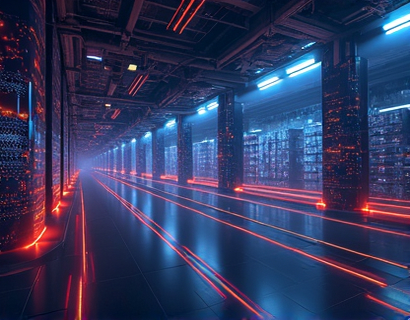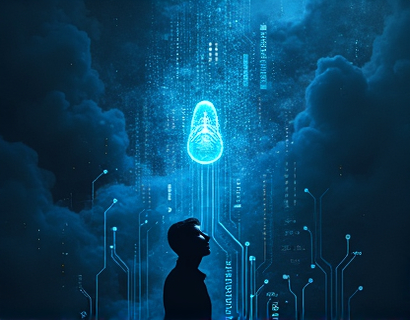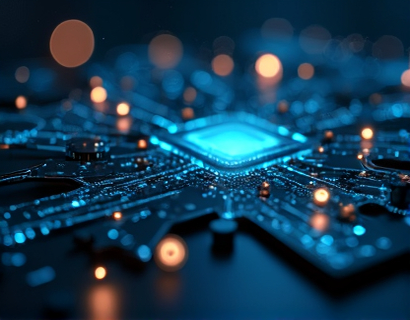AI-Driven Personalized Learning: Transforming Education Through Adaptive Technology
In the rapidly evolving landscape of education, the integration of Artificial Intelligence (AI) has emerged as a pivotal force, reshaping the way we learn and teach. AI-driven personalized learning platforms are revolutionizing the educational experience, offering a tailored approach that adapts to the unique needs, styles, and paces of individual learners. This shift towards adaptive technology is not just a trend but a transformative movement aimed at making education more accessible, engaging, and effective for all.
The Need for Personalized Learning
Traditional educational models often struggle to cater to the diverse learning needs of students. Classrooms are typically designed to accommodate an average learner, which can leave many students either under-challenged or overwhelmed. Personalized learning addresses this gap by leveraging AI to create customized learning paths that align with each student's strengths, weaknesses, interests, and learning preferences. This approach ensures that every learner receives the support and challenges they need to thrive.
How AI Powers Personalized Learning
AI-driven platforms utilize advanced algorithms and machine learning techniques to analyze vast amounts of data on student performance, behavior, and feedback. This data is used to create dynamic, adaptive learning environments that continuously adjust to the learner's progress. Key components of AI in personalized learning include:
- Data Analysis: AI systems collect and process data from various sources, including assessments, interactions, and learning activities, to gain insights into student performance and preferences.
- Adaptive Content: Based on the analyzed data, the platform dynamically adjusts the difficulty and type of content presented to the student, ensuring it is always challenging yet achievable.
- Real-Time Feedback: AI provides instant feedback on assignments and quizzes, helping students understand their mistakes and learn from them immediately.
- Personalized Recommendations: The system suggests additional resources, exercises, and learning paths tailored to the student's specific needs and goals.
Benefits of AI-Driven Personalized Learning
The benefits of integrating AI into education are numerous and profound. For students, personalized learning offers a more engaging and effective educational experience. By receiving content and challenges that match their individual needs, students are more likely to stay motivated and achieve their academic goals. For educators, AI tools provide valuable insights into student performance, enabling them to intervene early and provide targeted support where needed. Additionally, AI-driven platforms can help reduce the administrative burden on teachers, allowing them to focus more on teaching and less on grading and planning.
Enhancing Accessibility and Inclusivity
One of the most significant advantages of AI-driven personalized learning is its potential to make education more accessible and inclusive. Students with different learning styles, abilities, and backgrounds can benefit from a learning environment that adapts to their unique requirements. For instance, visual learners can receive more graphics and videos, while auditory learners can benefit from audio content and voice-based interactions. This flexibility ensures that no student is left behind, fostering a more equitable educational landscape.
Supporting Lifelong Learning
Personalized learning is not limited to traditional school settings; it extends to lifelong learning and professional development. In an era where continuous learning is essential for career growth and personal development, AI-driven platforms offer flexible and convenient learning options. Adults can pursue new skills and certifications at their own pace, fitting learning into their busy schedules. This accessibility encourages a culture of lifelong learning, empowering individuals to adapt and thrive in a rapidly changing world.
Case Studies and Success Stories
Numerous institutions and organizations have successfully implemented AI-driven personalized learning solutions, yielding impressive results. For example, a major university integrated an AI-powered adaptive learning system into its online courses. The outcome was a significant increase in student engagement and a reduction in dropout rates. Students reported feeling more supported and confident in their ability to succeed, attributing their positive experiences to the personalized nature of the learning experience.
Another example is a professional training company that adopted an AI-driven platform for its corporate clients. The platform provided customized training modules based on employees' roles, performance, and learning preferences. The result was a marked improvement in employee satisfaction and a notable boost in productivity, as employees were better equipped with the skills they needed to excel in their positions.
Challenges and Considerations
While the potential of AI-driven personalized learning is vast, there are challenges and considerations that must be addressed to ensure its successful implementation. One key issue is data privacy and security. Collecting and analyzing large amounts of student data requires robust security measures to protect sensitive information. Educational institutions and platform providers must adhere to strict data protection regulations and best practices to build trust and ensure compliance.
Another challenge is the digital divide, where not all students have equal access to the technology required to benefit from AI-driven learning platforms. Efforts must be made to bridge this gap by providing resources and support to underprivileged communities, ensuring that the benefits of personalized learning are accessible to all.
The Future of Education with AI
As AI technology continues to advance, the possibilities for personalized learning will expand even further. Future developments may include more sophisticated natural language processing, enabling more intuitive and human-like interactions between students and AI tutors. Virtual and augmented reality technologies could also be integrated to create immersive learning experiences that simulate real-world scenarios, enhancing understanding and retention.
Moreover, the collaboration between AI and human educators will become increasingly important. While AI can handle many aspects of personalized learning, the human touch remains invaluable. Educators will play a crucial role in guiding students, providing emotional support, and fostering a sense of community and belonging in the learning environment.
Conclusion
AI-driven personalized learning represents a significant leap forward in education, offering a tailored, adaptive, and inclusive approach that maximizes each learner's potential. By leveraging the power of AI, we can create a more engaging, effective, and accessible educational experience for students of all ages and backgrounds. As we continue to innovate and address the challenges ahead, the future of education looks brighter and more promising than ever.










































